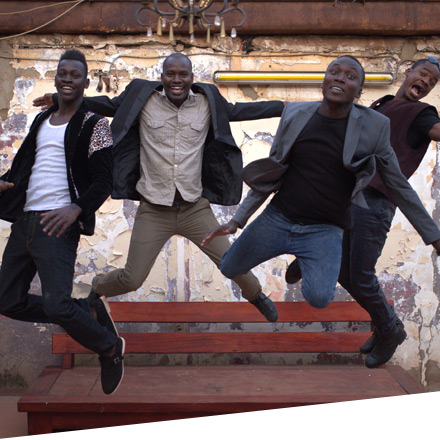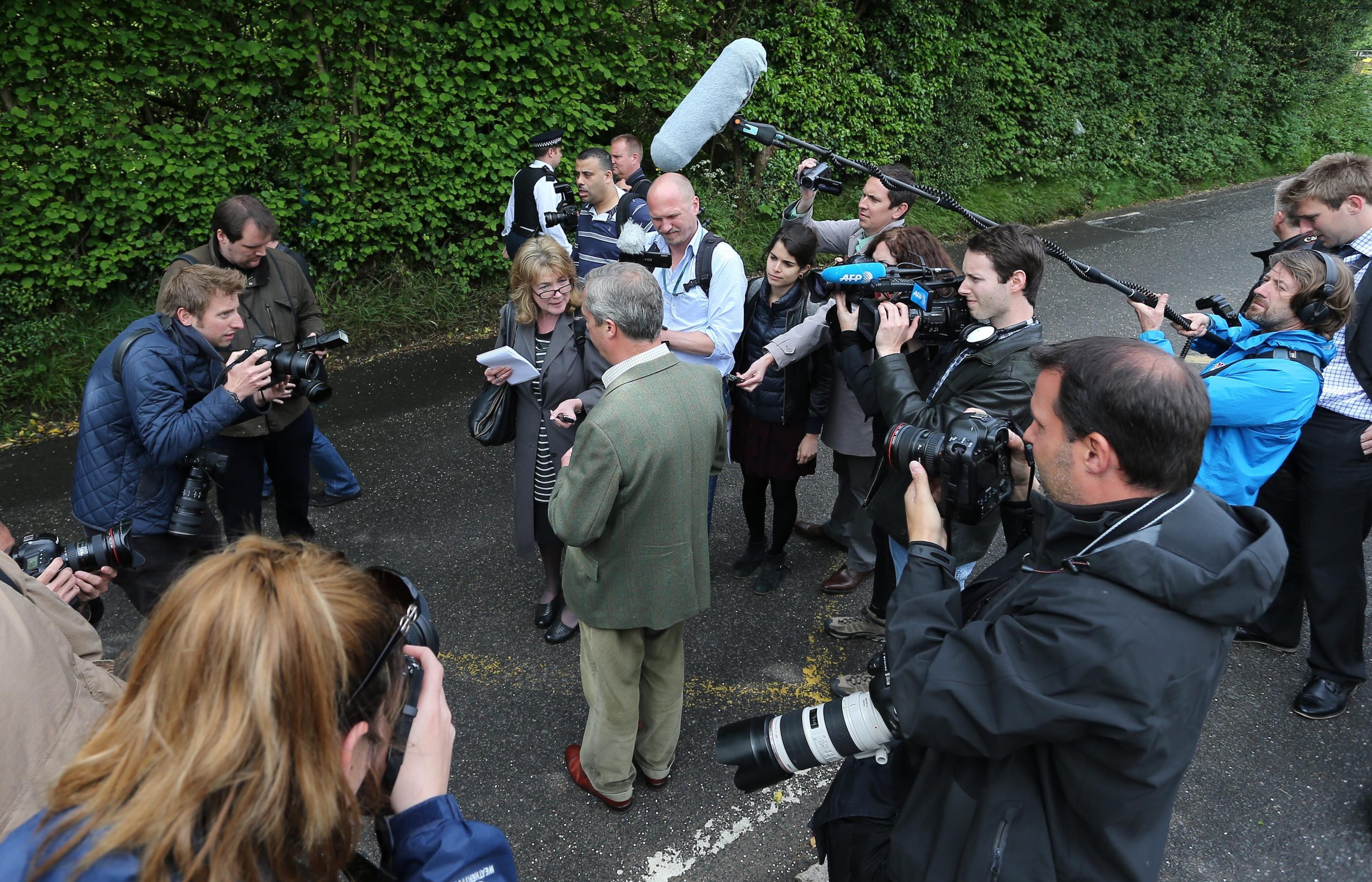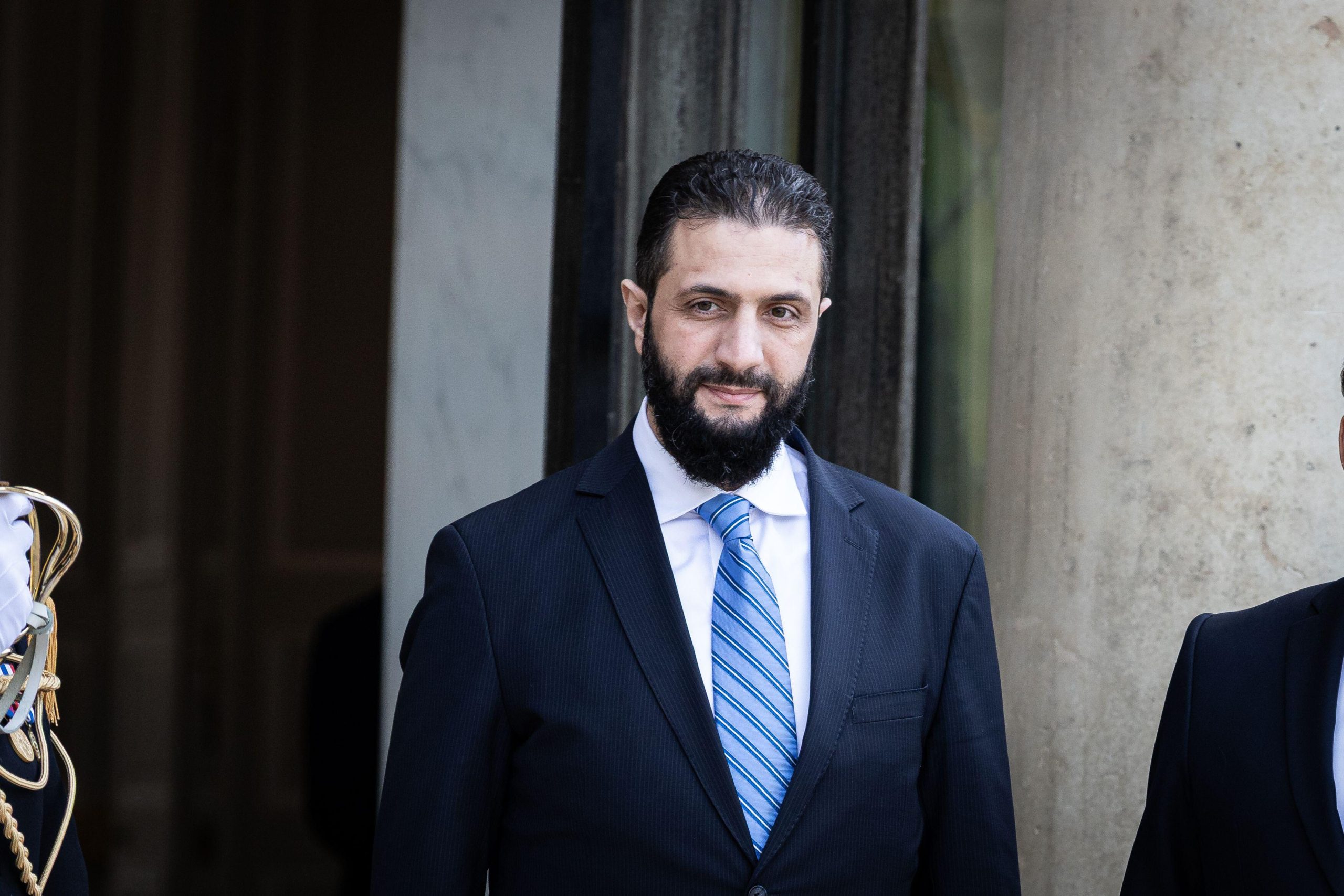UPDATE: Following the attacks in Paris on 13 November 2015, including the murder of 89 innocent concertgoers at Le Bataclan theatre, the Eagles of Death Metal have been added to the Music in Exile Fund playlist.
With the release of They Will Have To Kill Us First — Johanna Schwartz’s award-winning new documentary about Malian musicians who stood up to Islamists — comes the launch of the Music In Exile Fund, which will raise money to help musicians facing censorship globally.
Given the treatment of music by governments of all types from the early 20th century until today, it is clear to see it is a medium of real power. It can change minds and spread ideas. Works have been banned and artists imprisoned and sometimes even killed. In some cases, musicians flee their home country or are banned from entering another.
Here is our celebration of music and musicians who have provoked debate, censorship or worked despite society’s disapproval. Listen to our playlist of some of the best songs and artists from this group of determined musicians.
1) Erwin Schulhoff – String Quartet No. 1
Jewish artists suffered under Hitler’s persecution. Dozens of composers were killed. Fortunately, much of Erwin Schulhoff’s work has survived for later generations. Schulhoff briefly studied piano with Debussy, and was awarded the Mendelssohn Prize in 1913 for his piano achievements and again after World War I for his compositions. He was sent to Theresienstadt concentration camp in 1941 and died in the Salzburg concentration camp in 1942.
2) George Formby – When I’m Cleaning Windows
Before Elvis sent shockwaves through the music world with a swivel of his hips, George Formby was going head-to-head with censors for his use of innuendo. Compared to the expletive-laden music that tended to come up against censors later in the century, Formby was relatively mild. The ukulele player from Wigan found himself on the BBC banned list for lyrics like: “Pyjamas lyin’ side by side, Ladies nighties I have spied, I’ve often seen what goes inside, When I’m cleanin’ windows.”
3) Victor Jara – El Lazo
Victor Jara is one of the best-known musicians to have paid the ultimate price for being outspoken and critical of a despotic regime. The a folk singer, theatre director and communist party member was taken prisoner during the coup by General Augusto Pinochet. He was tortured, beaten and made to play Russian roulette before being executed on 16 September 1973. Over 40 years after his murder, 10 of the alleged perpetrators were finally brought to justice.
4) Sir Paul McCartney & Wings – Give Ireland Back To The Irish
In January 1972, Paul McCartney was moved by the events of Bloody Sunday in the Bogside area of Derry, Northern Ireland, when British soldiers killed 14 civil rights protesters. His anger turned into Give Ireland back To The Irish, released a month later, and was the first single by Wings. Given the political tensions of the time, the song was banned by BBC, both on the radio and television.
5) Crass – Where Next Columbus?
Anarcho-punk ensemble Crass had a penchant for catchy album titles. Penis Envy, their 1980 release is a fairly typical example. Many record stores in the UK wouldn’t sell the album after one store was prosecuted under the Obscene Publications Act for stocking it.
6) Fela Kuti – Colonial Mentality
Fela Kuti is one of Nigeria’s most influential and outspoken musicians. His political campaigning was so effective that he was arrested 200 times, and once sentenced to five years in prison by a military court for currency smuggling. Amnesty International campaigned for his release, calling him a prisoner of conscience. He served a year and a half of the sentence and always protested his innocence.
7) Stiff Little Fingers – Beirut Moon
Stiff Little Fingers are the band that epitomised punk’s anti-sectarian message in Northern Ireland. But their politics spread much wider than the six counties. The first single from their 1991 Flags and Emblems album was withdrawn from sale on the first day of release because it criticised the British government for not acting to free journalist, writer and broadcaster John McCarthy, who had been held during the in the Lebanon hostage crisis
8) Frankie Goes To Hollywood – Relax
When BBC DJ Mike Read pulled Relax from the airwaves, criticising it for being overtly sexual and “disgusting” he probably didn’t think he would be making history. The song we all know today became the seventh biggest selling single of all time, and the publicity over the controversy couldn’t have hurt. A really good example of how censorship often backfires. Frankie says relax!
9) Body Count – Cop Killer
During the 1990s, American politicians — while divided on many things — seemed united in their distaste of rap. From Democrat Tipper Gore riffing on it in Congress to Republican President H.W. Bush calling it “sick, Ice T’s Cop Killer was public enemy number one. It was subsequently pulled from his metal band Body Count’s debut album.
10) Lavon Volski – Starszynia
Lavon Volski is an icon, not only of rock music in Belarus but of the country’s opposition movement. It is probably of no surprise then that under the current government in Belarus, the guitarist and singer, along with his group Krambambulya are blacklisted.
11) Tyler The Creator – Yonkers
Rapper Tyler, The Creator, was barred from entering the UK in August this year for a period of three to five years due to his controversial lyrics. The Home Office claimed the rapper’s music “fosters hatred with views that seek to provoke others to terrorist acts” and “encourages violence and intolerance of homosexuality.” Tyler will be the first-ever musician to be banned from the UK because of lyrical content — effectively considering an artist on par with a terrorist or hate-preacher.
12) El Haqed – Dawla
Mouad Belghouat is a Moroccan rapper and human rights activist who releases music under the moniker El Haqed. His music has publicised widespread poverty and endemic government corruption in Morocco since he sang Stop the Silence in 2011 and galvanised Moroccans to protest against their government. He has been imprisoned on spurious charges and is banned from performing or releasing music in his home country.
13) Songhoy Blues – Soubour
Songhoy Blues are an energetic band from Mali with inspiring beginnings. They fled their homes as refugee in the north of the country when Islamists took over. All four musicians met each other for the first time when they reached the safety of Bamako and, having decided they couldn’t remain silent, formed a band. Their music and story feature heavily in the film They Will Have To Kill Us First.
14) Ramy Essam – Foul Caviar
Ramy Essam was the voice of the Egyptian revolution which began in 2011. In just under three weeks at Tahrir Square, he found fame. His song Irhal, in which he urged Hosni Mubarak to step down, gained great popularity among the demonstrators. When the army moved in to clear the square, he was arrested and subsequently tortured. In October 2014, Essam was offered safe residence in Sweden for two years.
15) Ikonoklasta – Revolução
Luaty Beirão, aka Ikonoklasta, is a 33-year-old Angolan revolutionary rapper known for his politicised lyrics and criticism of the government. But since June, he has been in prison on charges of plotting to overthrow President Eduardo dos Santos. Beirão is currently on a hunger strike and, according to his family, in critical condition.
16) Eagles of Death Metal – So Easy
On 13 November 2015, the Eagles of Death Metal were playing a sold-out concert at Le Bataclan theatre in Paris when the venue was attacked by terrorists, who killed 89 concertgoers. The attackers shot randomly into the crowd and detonated explosive vests. All band members survived. However, 36-year-old Nick Alexander, who worked the band’s merchandise table, was among those killed.
You can donate to the Music In Exile Fund here.





